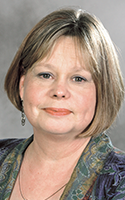Need a Career Coach?
By Deborah Jeanne Sergeant

Can a career coach help you? It may seem a paradox for a retiree or near retiree to think about retaining a career coach. You’re almost there — why bother now?
Shouldn’t you instinctively know what your post-retirement occupation should be?
Local career coaches say that a lot of baby boomers looking for a second or third career or even a part-time occupation turn to them for help.
“It’s helpful to work with a career counselor to sort out why they want to work,” said Leslie Rose McDonald, certified retirement options coach and president Pathfinders CTS, Inc. in Liverpool. “If they’re financially set, they have a broader set of options. If they need the finances, then a coach can be particularly helpful.”
If you want to work for a different company, you’ll need a resume. Anne Messenger, principal at Messenger Associates in Manlius, specializes in career management and HR consulting. She said that many people who have worked with the same company for years find themselves out of touch with what works for resumes, including their content, formatting and promotion.
“For people who are older and more seasoned, most times the biggest challenge is how to articulate their strengths,” Messenger said.
Instead of a chronological listing of past jobs, target the resume toward the job you want and tailor it to the skills and strengths the employer is seeking.
“We may use assessments that help target a person’s skills and strengths,” McDonald said. “Career counselors are trained in exploration dialogue or probing. We know how to ask the right questions to bring out the answers we need. Telling their story and what they liked and what frustrated them helps. Even then, sometimes people can’t see their own possibilities until I reflect back to them the pieces, the threads I see so they can see new possibilities.”
A pro can also help you leave off items that don’t belong in a resume, such as anything that can indicate protected statuses (unless vital to the job), and irrelevant or excessive information. No one needs to know about your hobbies, pets, or every single job you’ve had since high school. At this point, awards you snagged in college don’t matter anymore. What have you done lately?
Tacking on “references available” or actually listing references wastes space according to Falter, since potential employers will ask for references if they want them. It’s more important to underscore measurable accomplishments and your areas of expertise. That can be tough, both when writing a resume and for figuring out what you want to do next.

Some people begin a career because of a fascination with hands-on work but rise through the ranks to managerial roles, which eventually become wearisome. They may be happier going back to their roots and taking on a role closer to their first job.
By thinking about what elements of your career you enjoy, such as helping people, writing, organizing or researching, you can segue into a new venture.
Thanks to the networking and online sales possibilities accessible to everyone, “there are lots of opportunities now that didn’t exist before,” said Douglas Goldschmidt, licensed clinical social worker and life coach in practice in Syracuse.
For some people, going back to school may provide the stepping stone to the career they always wanted.
“It really comes down to your level of risk and commitment you’re willing to do,” Goldschmidt. “Do you want to learn new skills or parlay skills you have?”
Many people dream about starting a business when they retire, but this option carries the highest level of risk. It takes more than passion or industry knowledge to operate a successful business.
“We talk about choices, like why they want to do this,” said Rita Worlock, a therapist with CNY Marriage & Family Therapy Place in North Syracuse, and Change in Motion Healing Arts in Dewitt. “I like to know if they’ve thought about this years ago and put it off for some reason. I like them to be sure about the hard work it will take. Running a business is not easy and it’s not for everyone.”
Worlock recommends forming a business plan and consulting with people knowledgeable in that industry, as well as reviewing personal finances, room for risk, and the feasibility of that business in the current economy and location.
Retirees should thoroughly research the risks and benefits of starting a business. Choosing a business with low start-up costs and overhead helps minimize the risk.
Working as an independent contractor can also offer a means to start a business as you parlay your experience into working for yourself or as a subcontractor. Since usually these are service-based businesses that work for other businesses, such as preparing taxes, or writing ad copy, contracting tends to require much lower overhead than a products-based business such as a retail store.
“There are a whole set of variables that are based on interest, energy level, health and finances,” Goldschmidt said. “Being realistic is the key point so you’re not making a choice that’s based on fantasy. That’s sometimes not so easy.”

